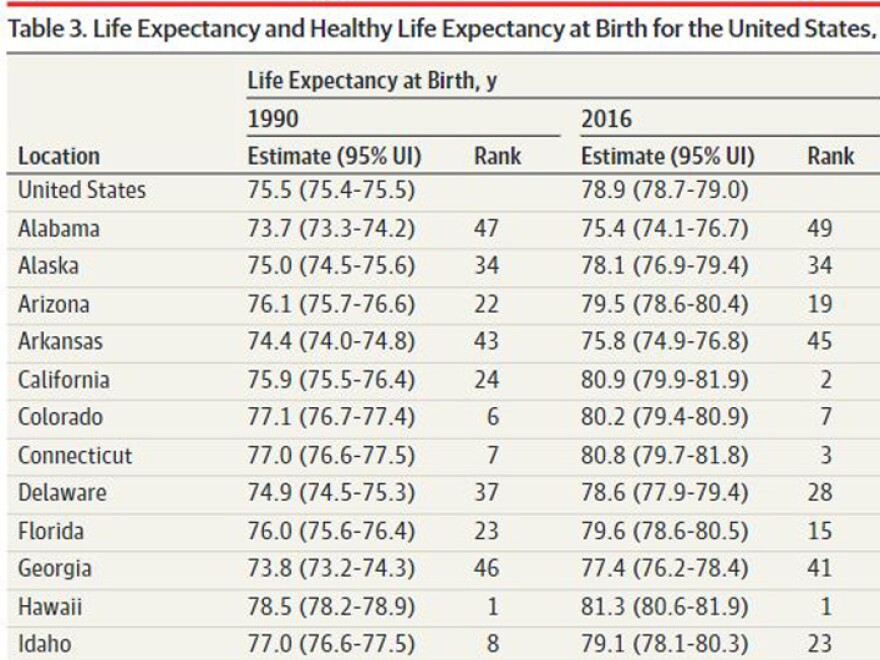A national study released Tuesday provides a state-by-state look at life expectancy and the factors that are killing Floridians, and as one might expect, opioid abuse is near the top of the list.
The years of life lost due to opioid use in the state jumped more than 750 percent over the past 26 years, according to The State of U.S. Heath study published in the Journal of the American Medical Association.
The study established the life expectancy of each state and then determined the risk factors that were taking years off of residents’ lives.
Smoking remains the number one risk factor causing death and disability in Florida since 1990. Others include obesity and high blood pressure, which lead to diabetes.
Between 1990 and 2016, years of life lost due to chronic kidney disease increased 232 percent, according to the study.
Overall, Florida ranks 29th in the nation in years of life lost.
Along with risk factors, the study looked at aspects that can help Floridians live longer, including education and access to quality health care.
Florida ranks 15th in the nation with an average life expectancy of 79.6 years. Hawaii tops the list with residents living an average of 81.3 years.
A major factor in the life expectancy of Floridians is their lifestyle, said study author Ali Mokdad, a professor at the University of Washington.
“My recommendation for Florida to be healthier is to cut down on smoking, exercise more, eat a balanced diet and enjoy the beautiful weather of Florida,” Mokdad said.
Along with drug use and smoking rates, there are several factors that make one state healthier than another and the culture of a community can play a big role, he said.
“It’s the neighborhood around you, it’s your company, it’s your friends,” Mokdad said. “So it’s a combination of a way of life or a culture. So if you decide, for example in Florida to live healthier, is the community around you supportive of you living healthier?”
That can include access to healthy food and quality health care and whether your peers smoke or drink alcohol.
In the South, for example, dietary habits include more fried and greasy foods that are high in calories.
The study wasn’t all bad news for Floridians. Over the 26 year study period the years of life lost by Floridians due to car crashes dropped 15 percent. Also, during the same period, the life expectancy of Floridians increased from 76 years to 79.6 years.


